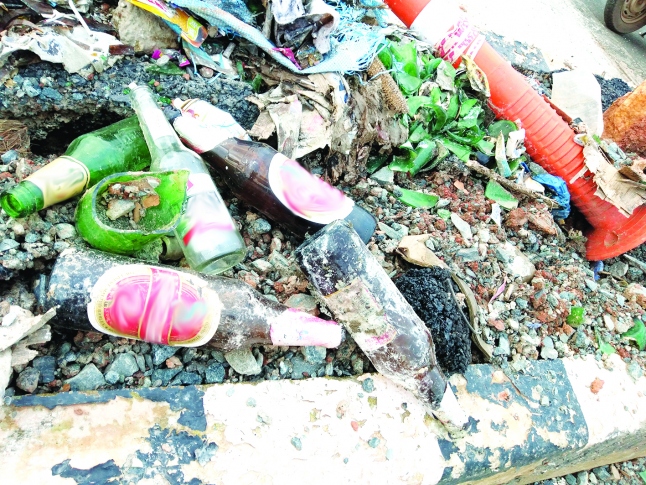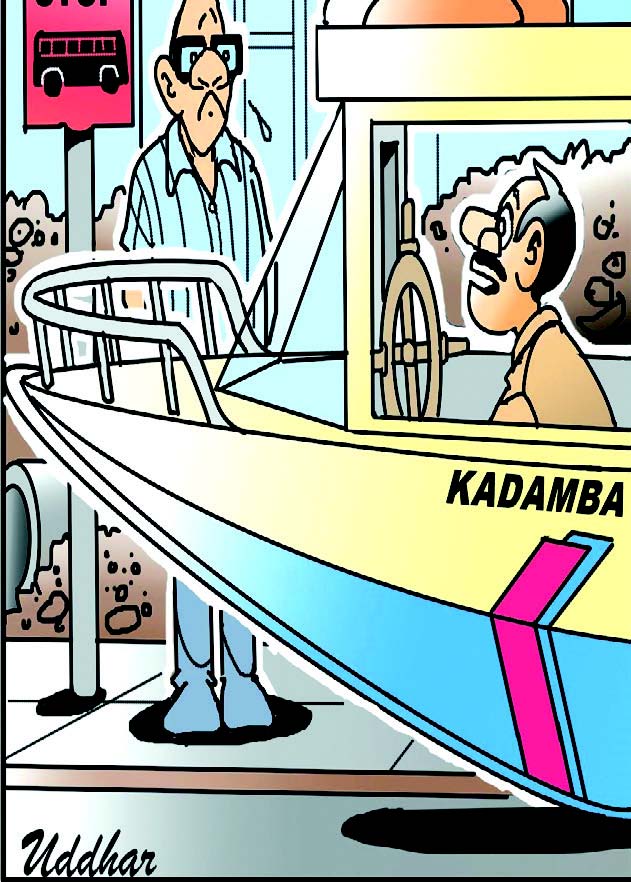
Blaise Costabir
Two score and five years ago, on an industrial visit to Singapore at a conference on plastics, a gentleman from a famous electronics brand was gushing on end of life (EOL). The company had just introduced a new TV, the unique selling proposition of this TV was the fact that at the EOL, the TV would be taken back and by just removing one clamp, the plastic shell, the glass tube and the metal clamp were segregated for onward disposal. Earlier technology had a metal insert embedded in the plastic part. So separating the metal and plastic was very labour-intensive and thus costly.
This tells us a few things, one, EOL is a big factor in abroad and companies keep thinking how to ensure a TV, glass bottle or a plastic glass, has completed its useful life, and it comes back to the manufacturer for proper disposal. So, DESIGNING FOR ENVIROMENT plays a role in new product development. Two, where did they send the model that the more environmentally friendly design replaced? You guessed it, to India as the latest technology. It was no doubt the latest but not as environmentally friendly, and till today we are a soft State where these laws are concerned. Three, the cost of responsibly disposing a product at its EOL is built into the price.
India, is trying hard to address the issue of polluter pays concept. In 2016, the Solid Waste Management Rules were notified. The rules are basically for individuals or so it seems. Of course, despite the rules, especially segregation which is a thrust area is still wanting. Diapers and Sanitary napkins get special mention, but seeing that there is no active participation in the disposal of the used diapers and napkins tells you that no producer has taken it seriously and today is a huge problem for disposal.
Now, draft Extended Producer Responsibility (EPR) policy is on the anvil, but only for plastics. Extended Producer Responsibility (EPR) is an environmental policy approach where the responsibility of producers for their products is extended to include the social costs of waste management.
Plastic, glass, multilayer packaging, tetra packs, diapers, etc, are generally handled through municipal/panchayat waste management programs.EPR is supposed to shift direct financial responsibility for the costs of waste management to the producer, away from the municipality and taxpayer.EPR is designed to confront the producer with the costs of disposal of their products, and provide incentives for the producer to redesign and market their products to be more environmentally friendly.
While the objectives are good they seem to be sabotaged by producers who refuse to agree to taking care of the waste their products generate in terms of packaging and EOL. The concepts can be applied to many if not all EOL products but at present would like to focus on beer bottles.
We see rag pickers collecting plastic bottles, but they do not pick glass bottles. These glass bottles are all over the place, many are broken. Walking on the beach or bund can be dangerous, glass pieces are strewn on the ground, broken by irresponsible drinkers both local and tourists. For fishermen, glass is an occupational hazard now. Why do the rag pickers ignore the glass bottles? The simple reason is economics.
The rag picker gets approx 18/kg for PET bottles and 40/kg for aluminum, but only 2/kg for glass. So, it will not be rocket science to conclude that he will not waste his space collecting glass bottles. The sellers of plastic bottles do not take the bottles back, rather there are others, also known as, “Producer Responsibility Organisation”(PRO). A PRO will levy charges on participating firms to cover the net costs of its operation. Prices are fixed depending on the demand for different materials. Some manufacturers offer to buy back their empties, so the PRO segregates and gets a better deal. Where the waste products are to be recycled, there may be significant costs of separation, sorting and transportation.
The maximum bottles seen thrown away are beer bottles. Beer bottles once opened cannot be reused. They used to be collected by the sellers and deposit refunded; however because of pressure from wine shops this option was shut down. Wine shops felt that the process of collecting a deposit, storing and handling was too much. Manufacturers agreed and bottle collection was stopped. In effect the manufacturers abdicated their responsibility and the environment is paying a huge cost.
The blue alcohol bottles have no resale value even in scrap and thus abandoned, this a classic case for the manufacturer to change his bottle if there was a cost attached to its EOL.
It is imperative that the government take a hard and bold stance and amend the EPR to include bottles. The vendors must collect a deposit from the buyer. This is to be refunded when anyone returns the bottle. Assume deposit is Rs 5 it should be part of the price of the bottle. The manufacturer pays the dealer Rs 5.5 for every bottle returned. So dealer makes 0.5p per bottle over and above his commission. Since deposit is collected in bottle price, it will make no difference to seller if he actually sold the bottle or someone else did. This will make it convenient even for rag pickers to deliver to nearest wine shop. Other option is switch to aluminum cans, classic example of design for environment.
The big brands should take the lead as responsible corporate citizens and not wait for the law to change but act to ensure environment-friendly products and also inculcate in the customers a sense of responsibility. Cheers.
(The author prefers to write rather than chat in a balcao.)
